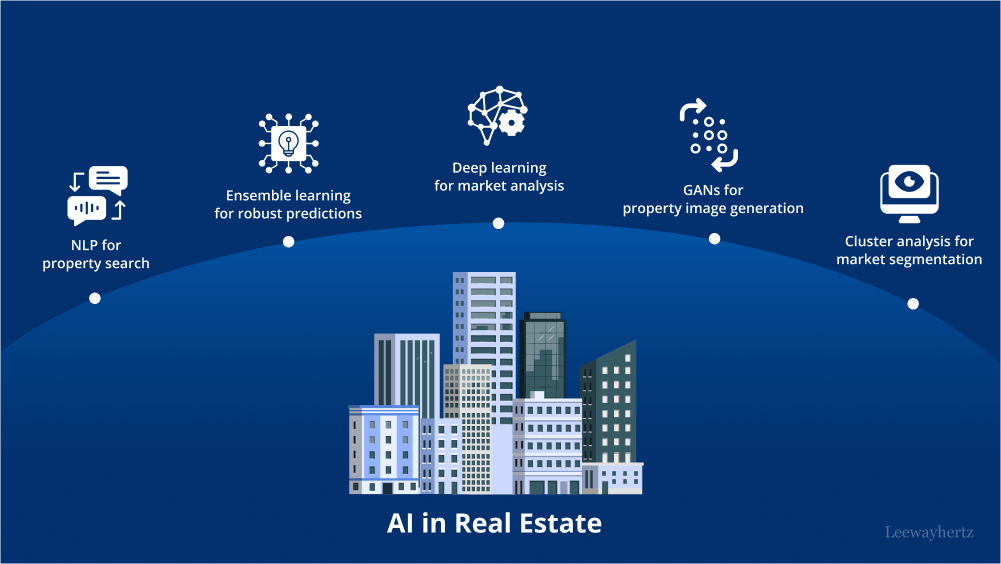Artificial Intelligence (AI) is revolutionizing the real estate industry, reshaping how properties are valued, marketed, and managed. By analyzing large volumes of data and automating complex processes, AI has made property investment, sales, and customer engagement more efficient and data-driven. Real-world case studies show how AI is being successfully implemented across the real estate lifecycle.
What Role Does AI Play in Real Estate?
AI in real estate involves using machine learning, predictive analytics, natural language processing, and computer vision to automate decision-making, forecast market trends, and personalize services. From property valuation to tenant experience, AI offers intelligent solutions to improve accuracy and customer satisfaction.
Real-World Case Studies in AI and Real Estate
1. Zillow – Predictive Property Pricing
Zillow, a leading online real estate marketplace, uses AI-powered models to provide “Zestimates” — predictive home valuations based on historical pricing, location, comparable properties, and user behavior. The platform continuously refines its algorithms using real-time data to improve price accuracy.
Impact:
Zillow’s AI models have reduced pricing errors significantly, helping buyers and sellers make informed decisions while boosting user trust and engagement on the platform.
2. Compass – AI-Driven Marketing for Agents
Compass, a real estate technology company, uses AI to assist real estate agents in marketing properties more effectively. Its platform suggests optimal listing prices, automates brochure creation, and recommends the best time to list a property based on local market conditions.
Impact:
Compass agents have reported faster sales and higher client satisfaction due to more personalized and data-driven marketing strategies.
3. REimagineHome – AI Interior Design and Staging
REimagineHome is an AI-powered virtual staging tool that allows agents and property managers to transform property photos into fully furnished, styled images tailored to different audiences (e.g., modern, minimalist, luxury).
Impact:
AI-generated virtual staging helps buyers visualize potential homes, leading to faster property turnover and reduced staging costs.
4. HouseCanary – Investment Risk Forecasting
HouseCanary uses AI and big data analytics to provide real-time property valuations, rental forecasts, and risk assessments for investors and mortgage lenders. The platform ingests over 40 years of property data to generate accurate forecasts.
Impact:
Institutional investors rely on HouseCanary to reduce risk and identify high-potential properties, improving portfolio performance.
5. Keller Williams – Smart CRM with AI
Keller Williams, one of the largest real estate franchises, integrated AI into its CRM to predict customer behavior, recommend next steps for agents, and even draft follow-up emails. This AI assistant, “Kelle,” helps agents prioritize leads and streamline client communication.
Impact:
Agents have seen improved lead conversion rates and better time management by focusing on high-intent buyers and sellers.
Key Benefits of AI in Real Estate
- Accurate Valuations: AI models analyze complex variables to improve pricing decisions.
- Predictive Insights: Future market trends, rent growth, and risk can be forecast with higher precision.
- Enhanced Customer Experience: AI-driven chatbots and recommendation engines provide personalized service.
- Operational Efficiency: Automating tasks like document processing, lead scoring, and virtual tours saves time and resources.
Conclusion
These case studies illustrate how AI is transforming real estate into a smarter, more data-informed industry. From pricing and marketing to design and customer engagement, AI is enhancing both the speed and quality of real estate transactions. As technology continues to evolve, embracing AI is becoming essential for staying competitive and delivering greater value to clients.







Leave feedback about this